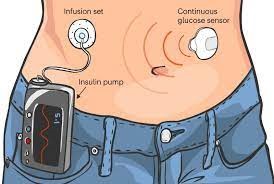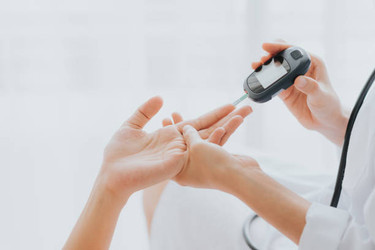Following the successful trial of an artificial pancreas, now approved by the National Institute for Health and Care Excellence (NICE), more than 100,000 people in England and Wales with type 1 diabetes could soon be offered the new technology to manage their condition on the NHS.
NICE recently released draft guidance recommending the use of hybrid closed-loop systems for some people with type 1 diabetes in England and Wales. This is following a trial by the NHS started in 2021.
The Hybrid Closed Loop System
The Hybrid Closed Loop (HCL) pump works by continuously monitoring glucose levels through a sensor that is attached to the body. Data received through the sensor is transmitted to a pump (also attached to the body) so that it can deliver the right amount of insulin to maintain healthy blood sugar levels, essentially taking on the role of a human pancreas. The system should greatly reduce long-term health complications.
The newly developed hybrid closed loop system allows a person to go about their day-to-day life without having to do frequent blood tests to see if their blood glucose levels are too high or too low.

A Significant Step
These recommendations are a significant step towards making this technology available on the NHS. If this proposal is approved in the consultation process – it would mean over time around 100,000 people with type 1 diabetes could be offered it as an option to help manage their condition. That’s a quarter of all people who live with Type 1 Diabetes!
Using a hybrid closed loop system eases the burden of type 1 but doesn’t mean that type 1 treatment is completely automated. For example, individuals will still need to count carbs and give the system bolusing information when they eat.
NICE will be making a final decision on who they’ll recommend the technology for. This decision is expected in spring of 2023.
Diabetes Care in the UK
People with type 1 diabetes don’t produce any insulin and need to take it on a daily basis throughout their lives. It often first develops in children and young people. Onset diabetes is less likely after the age of 40. Around 400,000 people suffer from Type 1 diabetes in the UK .
People with type 2 diabetes do produce insulin, but not enough, or the insulin they do produce doesn’t work properly. Those over the age of 40 are most at risk, although the risk for Black and South Asian people rises from the age of 25.
Do you want to learn more about the Hybrid Closed Loop System? Find out more through Diabetes UK.
Get In Touch
BVS Training has a range of over 70 video-based social care courses, including Understanding Diabetes
Talk to our team on 0345 644 2866
Email us on: info@bvs.co.uk


